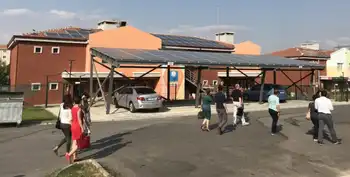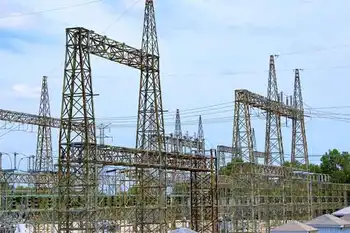All EV taxi fleets introduced in Japan
By The Independent
High Voltage Maintenance Training Online
Our customized live online or in‑person group training can be delivered to your staff at your location.

- Live Online
- 12 hours Instructor-led
- Group Training Available
Nissan Motor Co. has received advance orders for around 6,000 orders for its Leaf electric car, which will go on sale in Japan in December, with several hundred of those orders from taxi companies. Mitsubishi Motors Corp.'s i-MiEV is also proving popular with drivers.
Many of those firms are based in Yokohama, which is one of two local authorities in Japan to introduce subsidy programs for anyone who purchases an environmentally vehicle. Similar schemes are due to be introduced in other cities around Japan in the near future, including Tokyo.
Japanese consumers are very aware of the importance of measures to protect the environment and the taxi industry reports that customers appreciate the switch from gas-guzzling cabs to green vehicles.
But it has been the results of the Better Place trials in Tokyo that have arguably best demonstrated the potential of electrically powered taxis. In late August, the US-based international company that facilitates EV adoption announced that Japan's Ministry of Economy, Trade and Industry had given it permission to extend the switchable-battery electric vehicle taxi pilot scheme until the end of the year. The project was initially launched in April, with Tokyo specifically chosen for the test as it has around 60,000 taxis - far more than New York, Paris or Hong Kong - and Better Place believes the project will demonstrate the possibilities for electric vehicles.
While many are attracted to EVs, their main drawback is their limited range. At present, most are only able to travel a maximum of 160 km without needing to be topped up, which makes longer journeys impossible until the infrastructure is created.
But Shai Agassi, who set up Better Place in 2007, has come up with a system whereby charging spots to keep car batteries full are located beside parking spots at the office, outside shopping malls, restaurants or at home. The car just needs to be plugged in.
For journeys of further than 160 km, battery switching stations will be constructed alongside roads. The changeover will be completely automated and the driver will not even have to leave the vehicle.
As an added bonus, as most electric vehicles will be recharged during the evening at home, energy from renewable sources — such as solar power or wind energy — will be used to top up the car.
Currently the tests are solely being conducted with the switching system, but the company hopes to introduce the recharging infrastructure in the countries they plan to launch in next year.
The initial results of the tests have been a huge success, according to Kiyotaka Fujii, President of Better Place Japan.
"Up to this point, there has been very little information about how an EV battery will perform in heavily used, real-world, taxi conditions," he said. "This program has provided us with critical insights into the battery performance in a switch model and switch station performance for the toughest customers — taxi drivers.
"By extending this program, we hope to gain further insights into the battery performance and durability of the switch station itself, which will be invaluable as we move towards commercial launch later next year in Israel and Denmark."
A comprehensive analysis of the data is still under way, but early results show that the taxis involved in the test drove more than 40,000 km, drivers used the switch station 2,122 times and the average time taken to change the battery was 59.1 seconds — far faster than filling a conventional vehicle up at a fuel pump.











